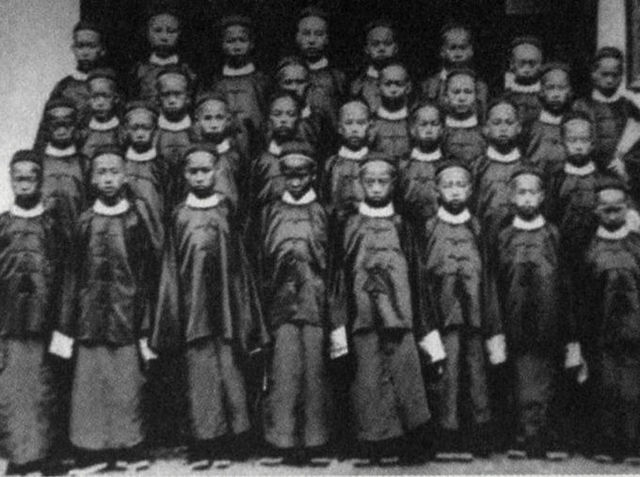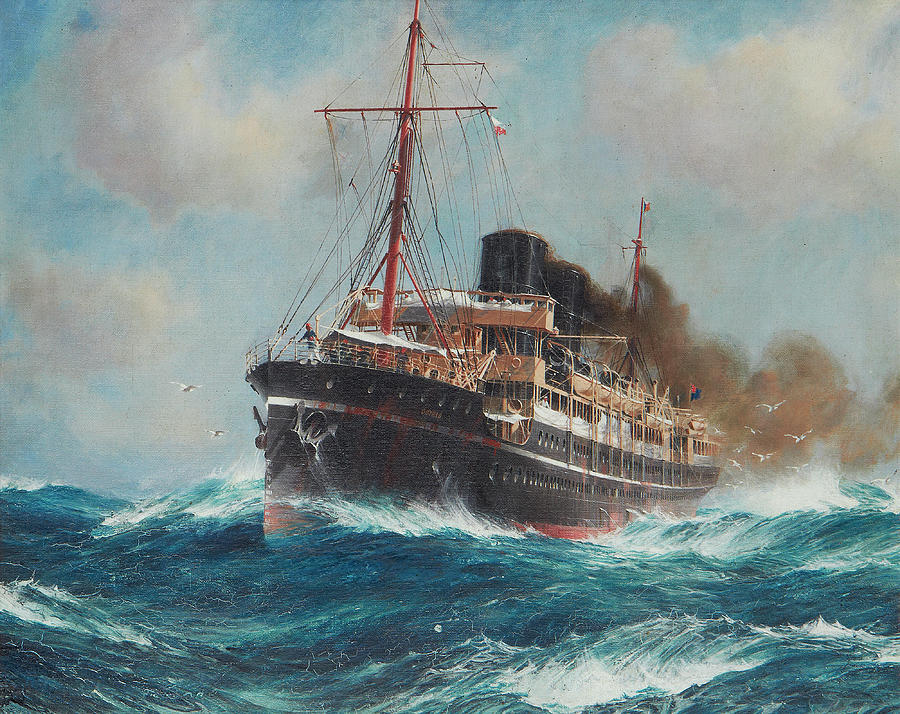did the Panthay rebellion occur as OTL?
That was essentially over before the POD (1873), no?
did the Panthay rebellion occur as OTL?
Butterflied as the leader of China perhaps, but Sun Yat-Sen/Sun Zhongshan was born in 1866, quite sometime before the POD so he will probably be getting a mention at some point in the future.Sun Yat Sen would probably butterflied awayi guess.One thing I would always get frustrated by history is because of Those stinky Europeans Leader who keep thinking how they are so perfect than another civilization that make me want to create time machine and travel back in time to give them spank in the ass.
Wonder what happens to Ridwan Asher. I always see his post on the first timelines. And last year I come in contact with former member Abdul Hadi Pasha and ask him about the ottoman timelines with the same POD you use. And yes he actually still writing about the timelines and still have not upload it lol. I would try to contact him again and ask him if the said timelines has completed.
So it seems. I'm not a fan of the Taliban's harsh policies, but I do wonder what they could realistically do to stop the economic suffering of Afghanistan's population.Well that's what happens when you apply harsh rule over a population suffering from decades of warfare. Taliban learnt that and they are now doing it at a slower pace.
did the Panthay rebellion occur as OTL?
That was essentially over before the POD (1873), no?
As Tyler pointed out, the Panthay Rebellion ended before the POD, so it definitely happened.According to Wikipedia the times pan was 1856–1873, so I guess you're right there. Sad.
Pan-Turkic ideas will almost certainly be floating around, even if we don't see the establishment of the great space-filling Central Asian Empire. I dread to think of what kind of intercommunal violence would be taking place were the ETIM armed by a great power and the Chinese fighting against what was seen as foreign subversion.I also want to talk something after mention Yaqub Beg.Ottoman not only nominally suzerain of Yettishar Khanate,they also make maximal effort to send material support like advisors.Although Pan-Turkish won't become mainstream ideology ITTL Ottoman,there're still naturelly that Ottoman extend their influence to inner asia.Maybe Nassirisimo thought 1.0 a bit exaggerate,but I think even Enver Pasha fall in Dushanbe,he still can success in Kashgar.


I suppose the question is whether the Qing Reforms of TTL are merely buying time or if they are a way to construct a viable modern state capable of preserving China. Even Cixi was advancing some constitutional reforms, and this will likewise be true of Guangxu, who now also has the model of the Ottoman Empire to emulate as well as Japan.It's interesting how the survival of the Ottoman Empire has altered and diluted imperialist dynamics, though of course in other instances such as with Japan it energised them.. Hopefully China is able to continue it's path of reform and modernisation, though I expect that this present system of piecemeal reform and autonomous governors is unsustainable. The Qing court will probably attempt to enact constitutional reform - they did so IOTL and with a liberaliser at the helm will likely continue even if it is too little too late.
Japan must be feeling rather self-satisfied though, given their total success in the matter of the Liaodong Concession and the indemnity payments. I imagine there was some tension in Russia between those who focused on internal reform and fulfilment of the Pan-Slavic idea as opposed to those who supported a focus on East Asia, one now firmly resolved in favour of the latter camp. They are in a weaker position than OTL Russia had been, and Japan is surely more entrenched in theirs. That said, any delay favours Russia, they will surely be carrying out army reforms, and if the Trans-Siberian Railroad is completed then their position becomes far more secure. It is for precisely that reason that Japan struck early IOTL, though of course one should not overstate the potential of a single railroad to supply whole armies across thousands of kilometres.


I guess one of the Emperor isthe signing of the “Three Emperor’s Alliance”
The Ottomans are still a long way from fully integrating Arabia, as it is more an intention than a reality at this point. Their rule is still characterised by a reliance on local tribal sheikhs. Still, the same is actually true of the British, who did not rule any part of Arabia directly (Aden was attached to British India if my memory serves me right). But still, if the British and Ottomans end up on the opposite side of each other, I think both sides would be able to influence locals to support them.This would be great for the ottoman to integrate arabia. Those sweet delicious oil will benefit ottoman later on. Regarding the british If somehow ottoman and british end up in opposite side in a world war, i wonder which side will be able to utilize arab rebellion to win arabia. Since ITTL Ottoman able to integrate the Arabia, Lawrence of Arabia probably would get executed by a random Bedouin.
Making Arabic an official language of the Ottoman Empire was discussed, and Abdulhamid made far more use of Arabs in government than previous Ottoman Sultans had done. Before Abdulhamid's time is over, he may well achieve this.Great chapter I think that's a he can bypass the nationalistic tendencies by making Arabic and Turkish official languages of the state also I think that thoughts and supporting spice and loyalists in Egypt maybe even in India can have some unexpected benefits in future finally can he start settling nomad tribes
Arabia is a relatively easy place for the Ottomans to expand their influence, as to some extent the Great Powers saw it as the Ottoman's backyard, with only the British challenging the Ottomans for control. Oil will of course be important if the Ottomans hold onto the region, but keep in mind the first oil reserves in Arabia were found in the 1930s in Bahrain, which came just about in the nick of time to save us from devastation at the hands of cultured pearls. There are a lot of things that could happen until then...With the spirit of 2.0,look it's hardly paint Ottoman colour in Nejd.And after mass territory lost,Oil will become more important resource for Ottoman,Should find some way maximize exploitation right in Arab peninsula.
I guess one of the Emperor isMeiji
Zionism is unlikely to have the same outcome as in OTL, and this may lead to non-Palestinian locations for colonization being more seriously considered by Jews depending on what happens within Europe. The largest Jewish community of the Ottoman Empire, that of Salonika, is now within the new Bulgarian State, but there are still significant groups in Istanbul, Palestine and smaller communities elsewhere. The Jews were seen rather more positively than Christians and were not perceived as disloyal, but they nevertheless suffered from the traditional discrimination that most had usually suffered in the history of many Islamic states. Perhaps when more changes become apparent, I might write an update on them.I apologize if this has already been asked, but what is the status of Zionism and Ottoman Jewish communities ITTL?

Well, at least the Ottomans will try to stay neutral if one happens in the future.So no second balkan war. Thessalonkia is lost then im guessing.

